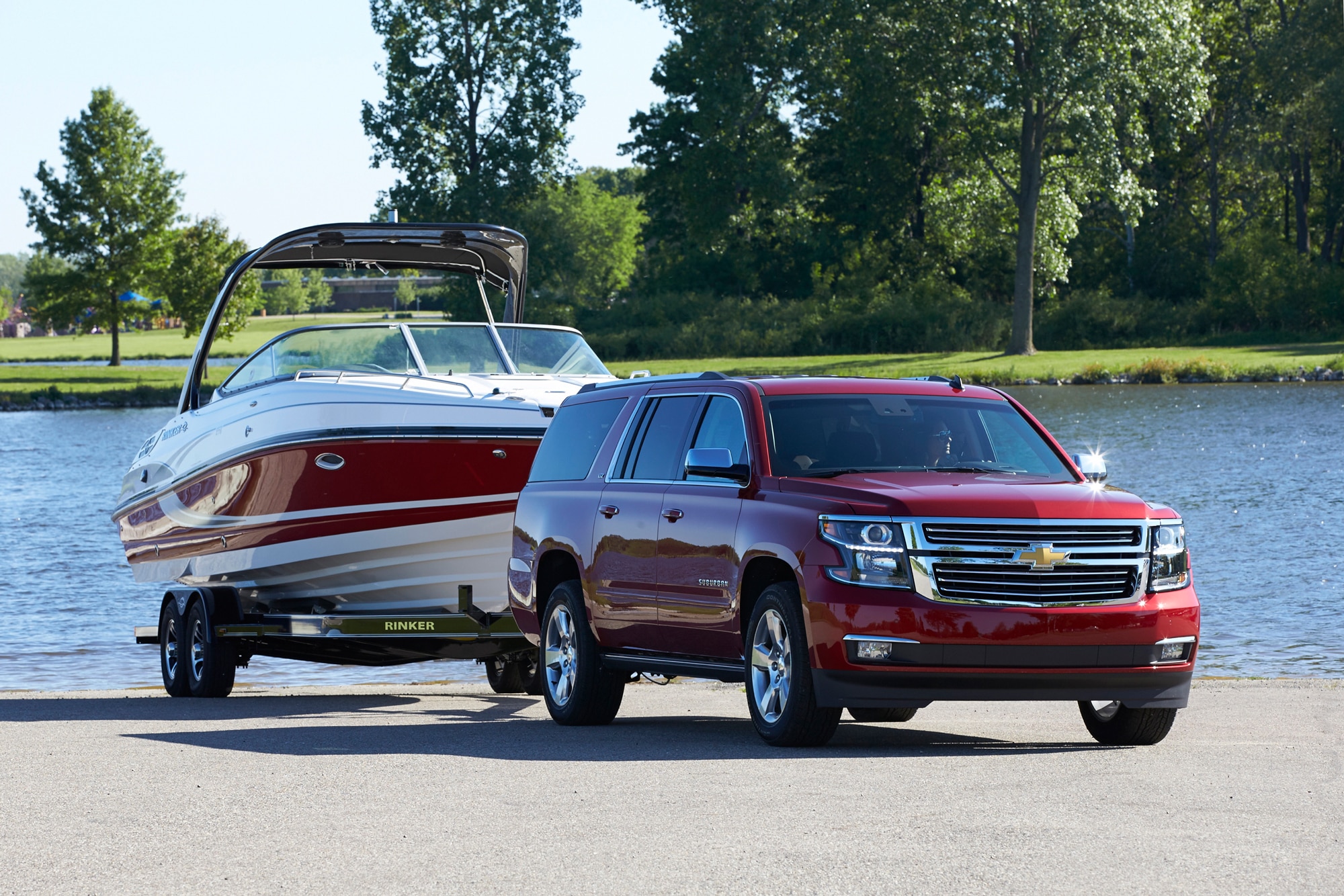How to Tow a Trailer With Your SUV
Knowing your SUV's limits takes the mystery out of towing.
 Chevrolet
Chevrolet
Towing can be a means to getting a job done or an adventurous way to hit the road with all the gear needed for a getaway. For SUV owners new to towing, the process can be a confusing jumble of numbers, weight ratings, and acronyms.
But with some savvy tips and a little practice, towing can become second nature. The first step is understanding the capabilities of your SUV or keeping in mind your towing needs when shopping for a vehicle.
If you plan on towing a small camper or relatively lightweight vehicles such as dirt bikes and ATVs, a compact to mid-size SUV should be fine. Many have towing capacities of 1,500 to 3,500 lbs., depending on the make and model. The Honda CR-V and Subaru Forester fall into this category.
If you're transporting a large boat or extra large trailer, a bigger SUV with more horsepower and torque could be necessary. You might consider stepping up to a full-size model like the Ford Expedition or Chevrolet Suburban.
Understand the Towing Acronyms
You’ll find two important pieces of information in your owner's manual, written on the driver’s side door jamb, or available online. These are the Gross Vehicle Weight Rating (GVWR) and Gross Combined Weight Rating (GCWR).
The GVWR is the maximum amount a vehicle can safely weigh. This takes into account passengers, cargo, and the vehicle's curb weight. GCWR is the max allowable weight of the vehicle, its payload, and trailer weight.
Understand the Towing Limits of Your SUV
Most vehicles list their max towing capacity in the owner's manual, though keep in mind that an SUV's max towing rating ticks downward when you factor in the weight of the passengers and cargo coming along for the ride.
Let's say your SUV has a max towing capacity of 3,500 lbs., but you and three other people (plus their luggage) weigh in at about 700 lbs. This means it’s safe for this SUV to tow 2,800 lbs.
Always Perform a Safety Check
If your trailer is equipped with brake lights and turn signals, make certain the electrical connections and lights are working before you hit the road.
While they're more common in pickup trucks, a trailer brake controller distributes the correct amount of braking force to a trailer equipped with brakes. Make certain you understand the system by consulting the owner's manual or asking questions at the dealership about how it operates.
If you're new to towing, consider filling up the tank before your trip to avoid having to navigate a busy gas station with your trailer. And don’t be embarrassed to have someone spot you when connecting the vehicle to a trailer. Even with rearview cameras and other modern towing aids, having a spotter can be a huge help.
Adjust Your Driving Behavior
It’s vital to adjust how you drive when towing. This might involve planning a route that avoids narrow city streets or similarly cramped driving conditions. You’ll also want to pay attention to your mirror adjustments so you can keep a careful eye on your trailer.
Avoid hogging highway passing lanes and make certain to leave more time for braking. Even if what you’re towing is relatively light, there will still be some impact on how your vehicle accelerates and stops.
Written by humans.
Edited by humans.
 Nick Kurczewski
Nick KurczewskiNick Kurczewski is a freelance automotive journalist based in the New York metro area. With approximately 20 years of experience, he has covered all aspects of the car world, from the pit lane at the 24 Hours of Le Mans, to car shows around the world, and a Zamboni lesson in Lower Manhattan. He’s also adept at providing helpful car advice and steering people towards the ideal car, truck, or SUV for their driving needs.
Related articles
View more related articles